
Universal Edition (UE) is an Austrian classical music publishing firm. Founded in 1901 in Vienna, it originally intended to provide the core classical works and educational works to the Austrian market. The firm soon expanded to become one of the most important publishers of modernist and contemporary classical music.

Max Brod was a Bohemian-born Israeli author, composer, and journalist.
The German-speaking population in the interwar Czechoslovak Republic, 23.6% of the population at the 1921 census, usually refers to the Sudeten Germans, although there were other German ethno-linguistic enclaves elsewhere in Czechoslovakia inhabited by Carpathian Germans, and among the German-speaking urban dwellers there were ethnic Germans and/or Austrians as well as German-speaking Jews. 14% of the Czechoslovak Jews considered themselves Germans in the 1921 census, but a much higher percentage declared German as their colloquial tongue during the last censuses under the Austro-Hungarian Empire.
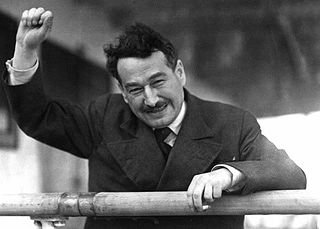
Egon Erwin Kisch was an Austro-Hungarian and Czechoslovak writer and journalist, who wrote in German. He styled himself Der Rasende Reporter for his countless travels to the far corners of the globe and his equally numerous articles produced in a relatively short time, Kisch was noted for his development of literary reportage, his opposition to Adolf Hitler's Nazi regime, and his Communism.
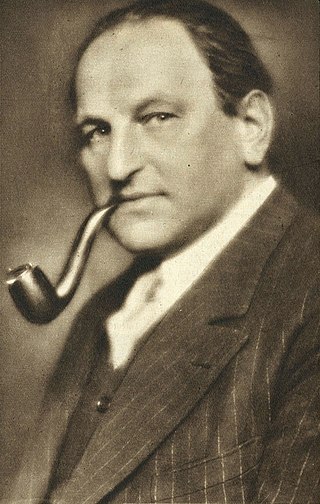
Egon Friedell was a prominent Austrian cultural historian, playwright, actor and Kabarett performer, journalist and theatre critic. Friedell has been described as a polymath. Before 1916, he was also known by his pen name Egon Friedländer.
František Xaver Brixi was a Czech classical composer of the 18th century. His first name is sometimes given by reference works in its Germanic form, Franz.

Pavel Eisner, also known as Paul Eisner and under the pseudonym Vincy Schwarze, was Czech linguist and translator and the author of many studies about Czech language. He is considered one of the most important Czech translators of all time and was said to be proficient in 12 languages - English, French, Icelandic, Italian, Hungarian, German, Norwegian, Persian, Russian, Serbian, Spanish, and Tibetan. He produced some of the earliest Czech language translations of Franz Kafka's work.
Chuchle battle was a student brawl fought in a Chuchle restaurant on June 29, 1881, resulting in several wounds and a general hangover, a swatch of Czech and German chauvinism in the late 19th century, just before the Charles-Ferdinand University was divided into Czech Charles-Ferdinand University and German Charles-Ferdinand University part in 1882.
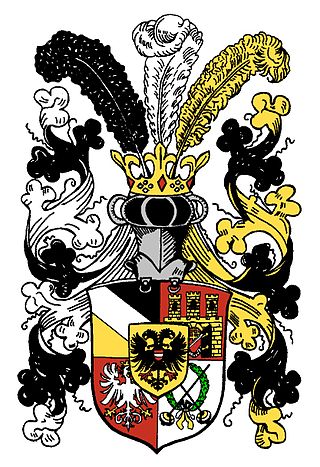
Corps Austria is a member Corps of the Kösener Senioren-Convents-Verband, the association of the oldest student fraternities in Germany, Austria and Switzerland. Corps Austria is "pflichtschlagend", which refers to the fact that it requires of its members to participate in several organized duel-like fencing engagements with members of other specific student fraternities, a ritual dating back to the 17th century and described by Mark Twain in his book "A tramp abroad". The Corps Austria is further considered "farbentragend" in that its members wear a colored sash across their chests as evidence of their membership of the fraternity. Both of these tendencies are characteristic of the most traditional and often very elite all-male fraternities in countries for central Europe. Eligible applicants are students of the Goethe University Frankfurt and other colleges in Frankfurt, Germany. Members of Corps Austria are colloquially referred to as "Austrianer", or simply "Austern". Corps Austria was founded in 1861 at the Charles-Ferdinand University in Prague and moved to the newly established Goethe University Frankfurt in 1919.
The Prager Zeitung was a German newspaper in the Czech Republic issued weekly in Prague; it now publishes online only.

Siegfried Jacobsohn was a German journalist, editor and theatre critic. In 1905 he founded the magazine Die Schaubühne and in 1918 renamed it Die Weltbühne, of which he remained editor of until his death.
"A Little Woman" is a short story by Franz Kafka written between December 1923 and the end of January 1924. It was first published in the Easter supplement of Prager Tagblatt on 20 April 1924. During his final illness Kafka corrected the proofs of the story for the inclusion into collection A Hunger Artist published by Verlag Die Schmiede after his death.
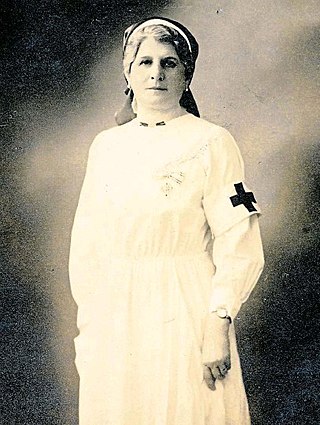
Hedwig Rosenbaum, née Hedwig Austerlitz, from 1909 on Hedwig Raabe, in Czech from 1945 (sic!) on referred as Hedwiga Rosenbaumová, was a tennis player who was attributed to represent Bohemia. She won two bronze medals in tennis at the 1900 Summer Olympics in Paris, in the women's singles and the mixed doubles with Great Britain's Archibald Warden. She was the first woman to represent Bohemia at the Olympics.
Alfred Polgar was an Austrian-born columnist, theater critic, writer and occasionally translator.

Erwin Guido Kolbenheyer was an Austrian novelist, poet and playwright. Later based in Germany, he belonged to a group of writers that included the likes of Hans Grimm, Rudolf G. Binding, Emil Strauß, Agnes Miegel and Hanns Johst, all of whom found favour under the Nazis.
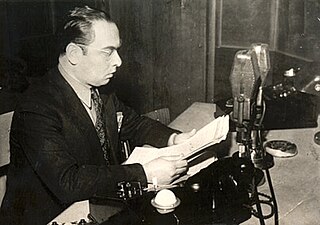
František R. Kraus was a Czechoslovak Jewish anti-fascist writer, journalist and editor, member of the resistance movement, sportsperson, and one of the best known Czech holocaust survivors.

Alice Rühle-Gerstel was a German-Jewish writer, feminist, and psychologist.
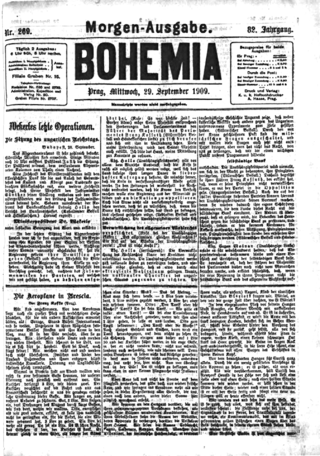
Bohemia was a German newspaper published in Prague from 1828 to 1938.

Die Neue Zeitung was a newspaper published in the American Occupation Zone of Germany after the Second World War. It was comparable to the daily newspaper Die Welt in the British Occupation Zone and was considered the most important newspaper in post-war Germany.
Prague German was the dialect of German spoken in Prague in what is now the Czech Republic. The written form of this dialect from the Luxembourg rule played an important role in the history of the German language for its balancing function between the written upper Austrian and southern German dialects and eastern Central dialects of central Germany, which later developed the spelling of Modern German writing.













